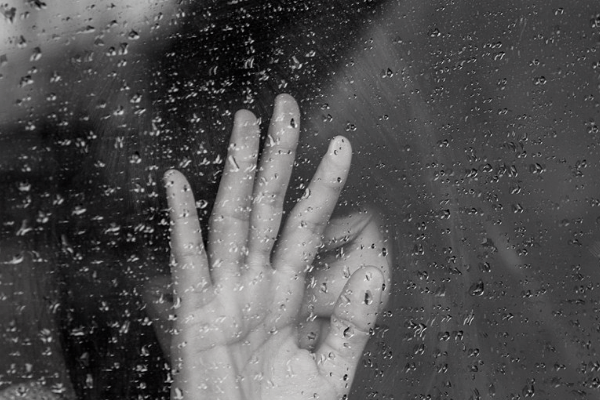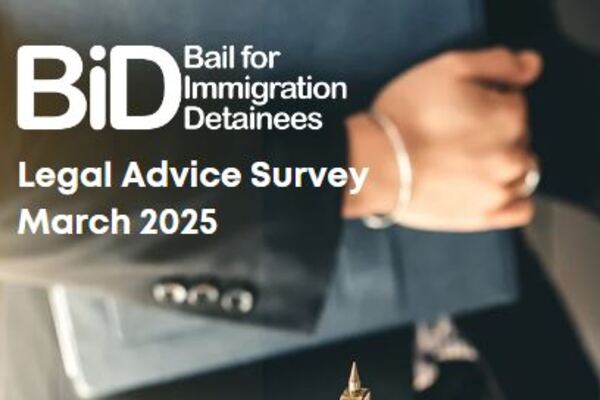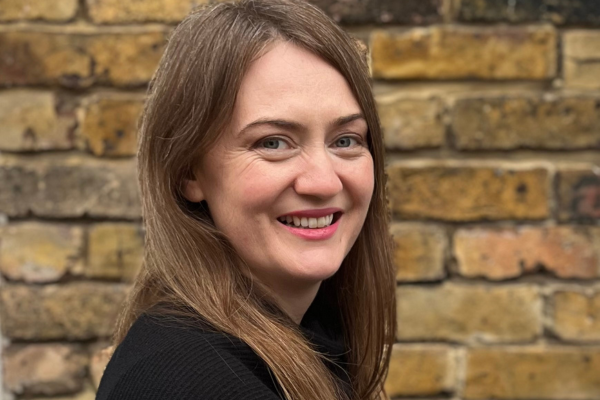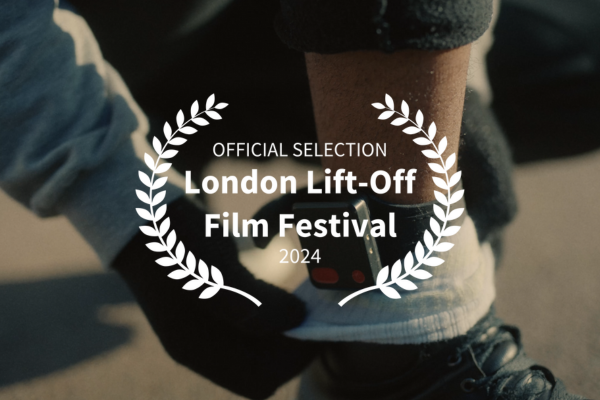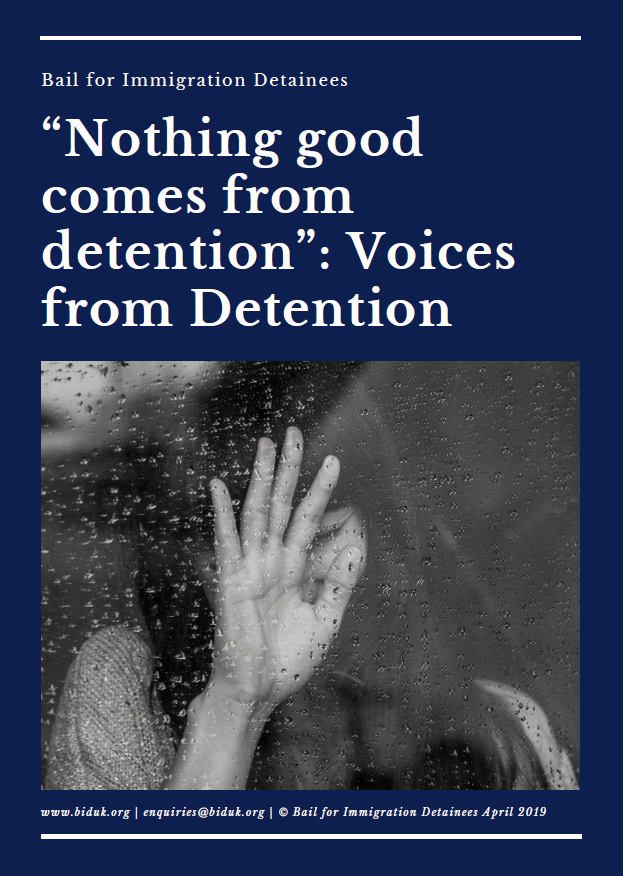
New research published today by Bail for Immigration Detainees (BID) exposes the full horror of people’s experience of immigration detention in the UK. The report ”Nothing good comes from detention” is based on interviews with 89 individuals who have been detained in the last 18 months.
Following the BBC’s Panorama programme “Britain’s Immigration Secrets” G4S commissioned its own investigation into what happened in the centre. BID agreed to carry out a set of interviews for the investigation with people that we were in touch with. Following this, we decided to expand the interviews to other detention centres to produce our own report of people’s daily experiences across all detention centres.
The report provides a platform for people geographically, legally and socially isolated by immigration detention. Although immigration detention has come under significant scrutiny in recent years, the voices of those in detention are not always heard. These testimonies offer an insight into the cruel reality of life for those detained.
Interviewees criticised every aspect of detention in stark terms and some disclosed shocking personal experiences. May interviewees found immigration detention a worse experience than prison. A number of common themes emerged from the interviews:
- Racist and disrespectful attitudes of staff
- Poor quality healthcare and culture of disbelief on the part of medical staff
- Prison-like conditions -Violence, drug use, self-harm and suicide
- Excessive use of solitary confinement
- Understaffing
- Draconian lock-in regimes
BID’s Director, Celia Clarke, said:
“The testimonies that make up this report bear witness to some truly dreadful abuse. The report makes for grim reading and reveals a system that is fundamentally broken. The plain truth is that there is no humane way to deprive people of their liberty for immigration purposes.”
As one individual detained in Colnbrook IRC said:
“It’s “Care and Custody”, but it’s more like profit and custody. Because here it’s privately owned. There’s no duty of care. There’s a few officers here who try to do it different but it’s only a few officers who show a duty of care.
There is a spice epidemic, outside people are dropping like flies and nobody seems to care. We are the forgotten people here, we are just numbers here and profit. The more people here the more money the shareholders make.”

